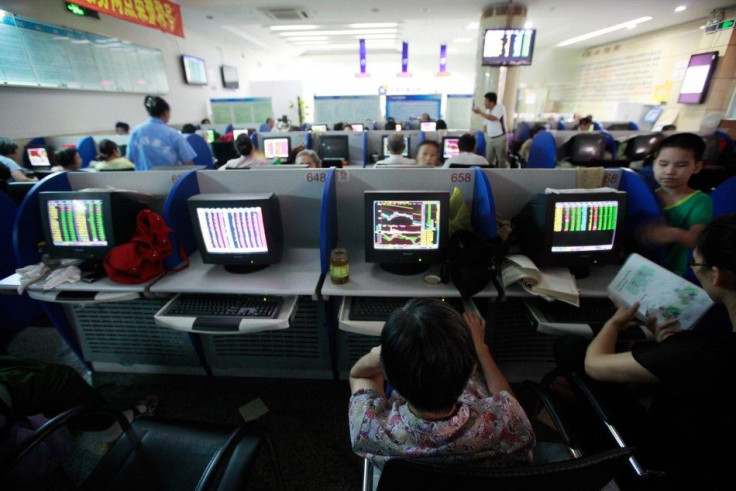Weekly Roundup: Asian Stock Markets Advance On US Data, China Manufacturing

Asian stock markets reported their best weekly gains in two months this week as investor sentiment turned positive on signs of an improvement in global manufacturing, while expectations that U.S. lawmakers will soon arrive at a consensus to avoid the "fiscal cliff” also lifted market sentiment.
Hong Kong's Hang Seng Index climbed 3.6 percent and closed at 21,913.98. China's Shanghai Composite Index rose 0.6 percent and closed at 2,027.38.
Market confidence was boosted by reports showing an improvement in manufacturing from both China and the euro zone. The euro zone’s manufacturing purchasing managers’ index (PMI) rose to an eight-month high of 46.2 in November from 45.4 in October, while a private survey Thursday showed that China’s manufacturing activity expanded for the first time in more than a year in November.
The HSBC Flash Purchasing Managers Index (PMI), a measure of China's nation-wide manufacturing, rose to 50.4 in November, entering the expansionary territory of above 50 for the first time in 13 months, from October’s final reading of 49.5. The Chinese data followed a report that showed manufacturing in the U.S. grew at its fastest pace in five months in November.
“The manufacturing data bodes very well for 2013. A lot of the bad news has been priced in. We’ve probably seen the bottom for the markets,” Shane Oliver, Sydney-based head of investment strategy at AMP Capital Investors Ltd., which has almost $100 billion under management, said on Bloomberg Television.
Market sentiment was also lifted by encouraging U.S. economic data and on expectations that President Barack Obama and the congressional leaders are making advances toward reaching an agreement to avert the “fiscal cliff,” a term used to describe a raft of tax increases and spending cuts that would automatically begin next year if nothing is done to avert them.
U.S. housing data during the week was encouraging as home builders’ confidence and existing home sales beat analysts' expectations. The National Association of Home Builders said Monday its home builders' confidence index jumped to its highest level since May 2006, while the National Association of Realtors' home sales report showed that existing home sales unexpectedly rose to 4.79 million units in October from the upwardly revised 4.69 million units in the previous month. The Labor Dept.'s weekly jobless claims data showed that the number of new people claiming jobless benefits in America dropped during the previous week.
However, Federal Reserve Chairman Ben Bernanke’s comments about the "fiscal cliff’ and renewed euro zone crisis concerns weighed on the Asian markets in the first half of the week. On Tuesday, Bernanke warned that monetary policy couldn’t do much to prevent the U.S. economy from falling into a recession if the lawmakers failed to avert the potential fiscal crisis.
After nearly 12 hours of talks in Brussels on Tuesday, European officials ended their discussions on Greece’s next tranche of bailout funds without a deal and said they would meet again on Monday.
Japan's Nikkei 225 Stock Average surged 3.8 percent and closed at 9,366.80 in the holiday-shortened week. South Korea's Kospi Index gained 2.7 percent and closed at 1,911.33.
Japanese stocks reported weekly gains despite weak merchandise trade data as the exporting companies rallied on a weaker yen. Official data Wednesday showed that Japan’s merchandise trade balance had remained in deficit for four straight months. The world’s third largest economy recorded a trade deficit of 549 billion yen ($6.7 billion) in October, which was much worse than economists' estimate of a 360-billion yen deficit as exports to China continued to slump following a territorial spat between Tokyo and Beijing.
Meanwhile, the Bank of Japan kept its key policy rate unchanged and refrained from announcing any monetary easing measures in spite of the political pressures on it to pursue the aggressive stimulus steps for reviving the economic growth momentum.
© Copyright IBTimes 2024. All rights reserved.











